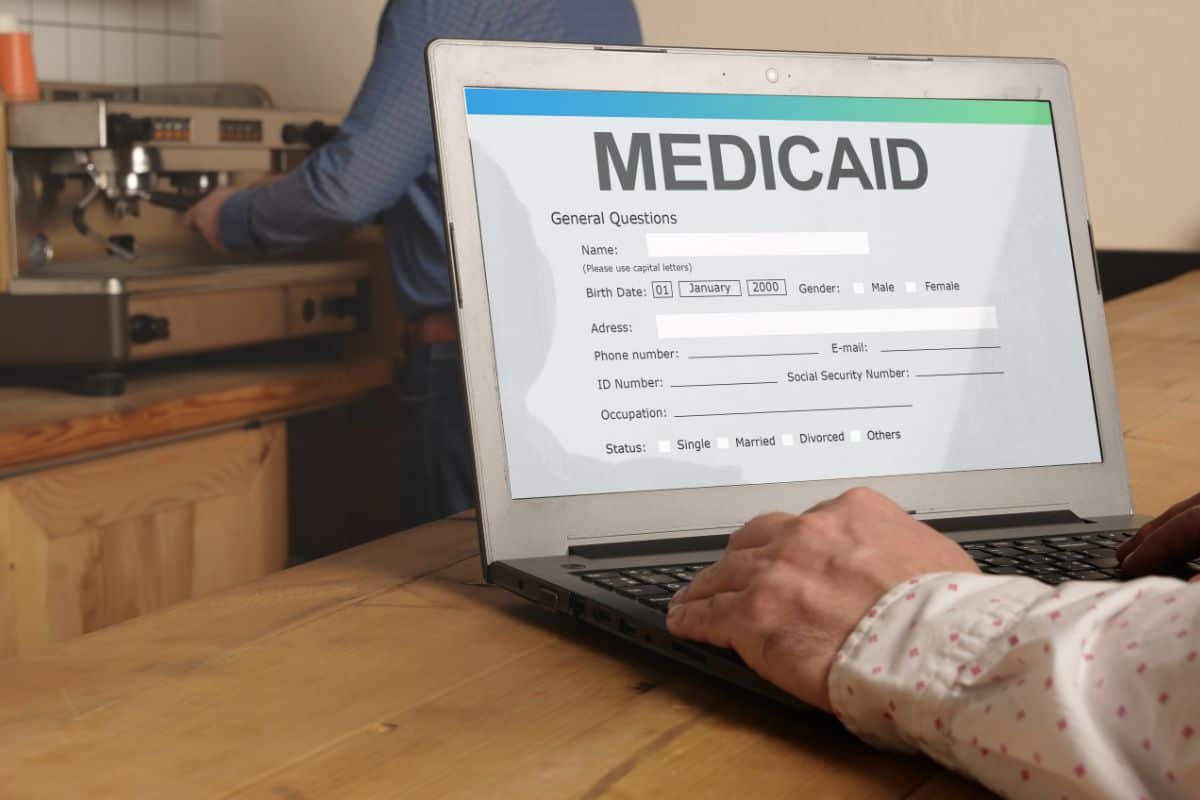Does unemployment count as income for Medicaid?
Losing or leaving your job can be one of the most liberating things on the planet.
Suddenly, you are not pressured by the burdens of constant work, and it feels like the world is your oyster… for about a week.
After that week, you begin to realize that people have jobs for a reason, money, and the world runs on one thing above all else, money.
This isn’t too bad for most people, as they normally already have a job lined up, or they can easily find another one in their chosen field.
However, when a job is lost due to extenuating circumstances – redundancy, being let go, or maybe even health issues – then that is a real problem.
Fear not, though, as the unemployment benefit from the federal government is there to be claimed by those in these circumstances.
The concern lies in the limitations placed on unemployment and what the federal government believes it should cover.
If you have lost your job due to health concerns, this is a major issue, as paying for that in the US is extortionate.
With that in mind, does unemployment cover health expenses? And, if not, does it count as income if you try to claim Medicaid?
In this article, we seek to answer these questions, so you don’t have to.
Table of contents
What Is Counted As Income In The US?
To start with, how do you define income? It’s simple: anything that comes into your possession, whether earned or unearned, is considered income.
So, is unemployment counted as income? The short answer is yes, but only for certain purposes.
There are two main types of benefits available to unemployed workers in the United States; Unemployment Insurance (UI) and Extended Benefits (EB).
Unemployment insurance is paid directly out of the state’s general fund and is usually paid monthly.
This covers wages lost while looking for new employment.
Extended benefits differ slightly in that they are provided through private companies who receive funds from the state.
These companies can either pay out to the individual themselves, or they can give them to the state, which will then distribute payments to those receiving EB.
Both forms of benefits are taxable income, just like any other form of income. Whether an individual claims UI/EB depends on their eligibility.
Eligibility requirements vary depending on the type of benefits you’re claiming.
For example, if you’re applying for UI, you must meet minimum requirements set by the state.
These include having been actively searching for a job for at least 28 weeks, and if you are over 50 years old, you must also have worked for at least 10 years.
If you are entitled to EB, you need to meet different criteria than you would for UI.
You need to be actively seeking work, but you also need to be able to show proof that you’ve searched for a job for at least 90 days.
If you are unemployed due to ill-health, you may qualify for both UI and EB. In this case, you would apply for both types of benefits simultaneously.
Both will be processed separately, so make sure you apply for each correctly.
How Much Is Unemployment Worth?
Now that you know what counts as income, you might wonder how much unemployment is worth.
Well, that is something that varies greatly from state to state. Even within states, it differs based on where you live.
For example, in California, if you are eligible for unemployment insurance, you get $450 per week.
That means that after 52 weeks of unemployment, you’ll have received $26,400. However, if you live in Florida, you won’t receive the same amount.
Instead, you’ll receive $350 per week. After 52 weeks, you’d end up with $19,200.
It’s important to note that all amounts are calculated using weekly rates.
So, if you were hired full time, you would receive more than double the amount if you lost your job part-time.
You can find out what your unemployment rate is in your state here.
Is Unemployment Covered By Medicaid?

This is an interesting question. Because of the way Medicaid works in the US, there is no ‘unemployment’ benefit.
Rather, most people who receive Medicaid are already working when they become eligible for medical care.
However, some states do offer additional coverage to individuals who are unable to work because of illness, injury or disability.
Some of these programs are called “Supplemental Security Income” (SSI), and others are known as “Medicaid Disability”.
In order to qualify for SSI, you must be found disabled under Social Security rules.
You must also be living below the poverty line ($1150/mo) and be incapable of earning enough money to cover necessities.
If you are found to be disabled, you will automatically be added to the program.
If you don’t want to stay on SSI, you can remove yourself by filing a request with the Social Security Administration.
In other words, if you qualify for SSI, then you are already receiving some kind of unemployment benefit.
The difference between SSI and unemployment is that SSI only covers a portion of your expenses; while unemployment provides you with an entirely separate source of funds.
This means that, rather unfortunately, unemployment does not count as income, and therefore you will not receive Medicaid while on it or, if you do, it will be greatly reduced.
Will My Medicaid Be Canceled If I Am Unemployed?
The short answer is yes. This is true regardless of whether you’re getting any form of unemployment.
When you file your application for Medicaid, you must declare every single asset you own.
Your assets include everything from bank accounts to cars — even things like your home equity.
If you’re unemployed, then you’re going to lose access to many of those resources.
As such, you should expect to see your eligibility for Medicaid reduced.
Once you’ve been terminated from employment, you will no longer be considered eligible for unemployment insurance, either.
As mentioned earlier, you may still qualify for Medicaid through another public assistance program.
If you do, then you will not be required to provide documentation of your current financial situation.
How Much Will It Cost Me To Apply For Medicaid?
To calculate how much it costs to apply for Medicaid, we need to know two different things:
- How long does it take to complete an application?
- What percentage of applicants actually succeed?
Let’s start with the first one.
According to the Department of Health and Human Services, the average length of time needed to complete an application for Medicaid benefits has increased over the last few years.
In 2011, the average wait time was about four months. In 2012, however, it had increased to almost six months.
Why the increase? The number of applications being submitted for Medicaid has increased dramatically since 2008.
Between 2007 and 2009, the number of applications filed per year remained relatively constant at around 700,000.
Since 2010, this figure has skyrocketed to more than 900,000 applications each year.
So what’s causing all of this growth in the number of people applying for Medicaid?
Well, there are several reasons why so many people have become interested in Medicaid.
For starters, the Affordable Care Act requires most Americans to purchase health insurance starting in 2014.
Many experts believe that this mandate will lead to more people becoming eligible for Medicaid.
Additionally, the ACA includes provisions which allow low-income adults to receive help paying for their premiums.
Finally, due to the high cost of medical care, many families simply cannot afford to pay for private health insurance.
There are not really many statistics on how many applicants succeed in getting Medicaid, but considering almost 74 million do receive Medicaid in the US, it is safe to assume most receive it.
The problem is the cost of the wait can be dire, and many people are turned away by it and the fact that states often require a payment for applications.
Unlike medical insurances, Medicaid has no monthly premiums, which is much appreciated by those who require the service.
However, depending on the state, there may be application fees and eligibility checks in places.
These application fees rarely go over $100, but that can be a bit difficult to come by if you are a low income household already.
Another issue with Medicaid is that depending on your income, you may be required to pay a lot of your wage into Medicaid in order to receive it.
A low income family will probably not have to do this, but one with a slightly higher income may be required to pay a fee that takes up a significant portion of their salary.
This means that the cost can vary and if you are struggling already, that is not what you want to hear.
Conclusion
When you become unemployed, most of your benefits from Medicaid will stop too.
The idea behind it is to help those with low income and if you are no longer employed, it is assumed that you are receiving other benefits to help you cope with unemployment.
This is irritating, but it is the way the system works in the US.
Frequently Asked Questions
What is the highest income to qualify for Medicaid? Washington D.C. has the highest allowable income to qualify for Medicaid, at 215% of the FPL for individuals and 221% for a family of three. That means an individual in Washington D.C. can make up to $31,347 per year and still be eligible for Medicaid.
New York, New Hampshire and Wisconsin were found to provide the best Medicaid programs in the country. States with the best Medicaid programs spend 65% more per person than bottom-level states. Top-end states fund their Medicaid programs with higher rates of state-provided funding.
No. Because each state has its own Medicaid eligibility requirements, you can’t just transfer coverage from one state to another, nor can you use your Medicaid coverage when you’re temporarily visiting another state, unless you need emergency health care.
